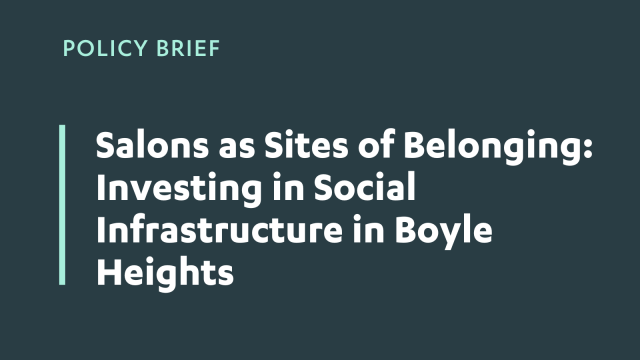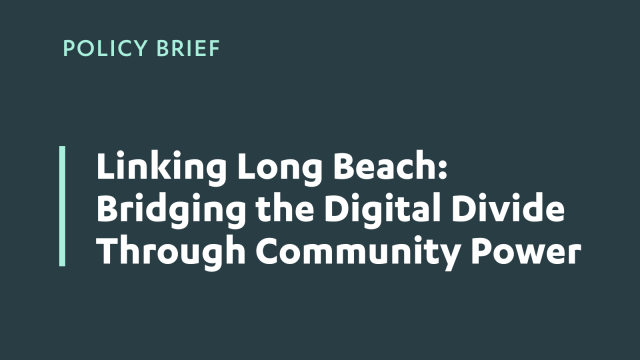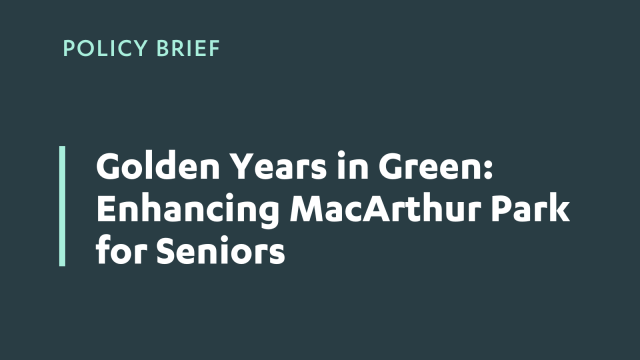Turning Down the Heat: Addressing Heat Inequities of Frontline Communities in Los Angeles
Los Angeles has been rated by the Federal Emergency Management Agency as the city facing the highest risk of natural hazards in the near future. In particular, Los Angeles is vulnerable to the adverse health impacts of climate change-induced extreme heat. Communities of color and low-income households face the greatest risk from extreme heat due to unjust policies like redlining, which have today led to the inequitable distribution of the resources necessary for communities to protect themselves against extreme heat.
This report uses existing research and municipal climate plans, a geospatial analysis, interviews with subject matter experts, community focus groups, and an online community survey to assess how the City of Los Angeles can better build equitable heat policy and long-term resilience among the most impacted and vulnerable communities.



